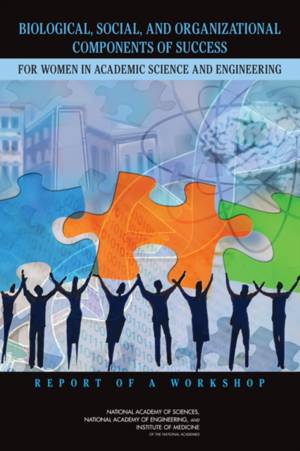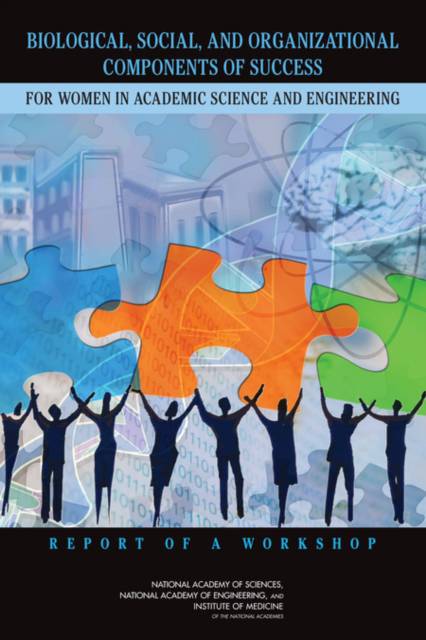
Bedankt voor het vertrouwen het afgelopen jaar! Om jou te bedanken bieden we GRATIS verzending (in België) aan op alles gedurende de hele maand januari.
- Afhalen na 1 uur in een winkel met voorraad
- Gratis thuislevering in België vanaf € 30
- Ruim aanbod met 7 miljoen producten
Bedankt voor het vertrouwen het afgelopen jaar! Om jou te bedanken bieden we GRATIS verzending (in België) aan op alles gedurende de hele maand januari.
- Afhalen na 1 uur in een winkel met voorraad
- Gratis thuislevering in België vanaf € 30
- Ruim aanbod met 7 miljoen producten
Zoeken
Biological, Social, and Organizational Components of Success for Women in Academic Science and Engineering
Report of a Workshop
Institute of Medicine, National Academy of Engineering, National Academy of Sciences, Committee on Science Engineering and Public Policy, Committee on Maximizing the Potential of Women in Academic Scien
Paperback | Engels
€ 78,95
+ 157 punten
Omschrijving
During the last 40 years, the number of women studying science and engineering (S&E) has increased dramatically. Nevertheless, women do not hold academic faculty positions in numbers that commensurate with their increasing share of the S&E talent pool. The discrepancy exists at both the junior and senior faculty levels. In December 2005, the National Research Council held a workshop to explore these issues. Experts in a number of disciplines met to address what sex-differences research tells us about capability, behavior, career decisions, and achievement; the role of organizational structures and institutional policy; cross-cutting issues of race and ethnicity; key research needs and experimental paradigms and tools; and the ramifications of their research for policy, particularly for evaluating current and potential academic faculty. Biological, Social, and Organizational Components of Success for Women in Academic Science and Engineering consists of three elements: an introduction, summaries of panel discussions including public comment sessions, and poster abstracts.
Specificaties
Betrokkenen
- Auteur(s):
- Uitgeverij:
Inhoud
- Aantal bladzijden:
- 244
- Taal:
- Engels
Eigenschappen
- Productcode (EAN):
- 9780309100410
- Verschijningsdatum:
- 8/12/2006
- Uitvoering:
- Paperback
- Formaat:
- Trade paperback (VS)
- Afmetingen:
- 152 mm x 229 mm
- Gewicht:
- 301 g

Alleen bij Standaard Boekhandel
+ 157 punten op je klantenkaart van Standaard Boekhandel
Beoordelingen
We publiceren alleen reviews die voldoen aan de voorwaarden voor reviews. Bekijk onze voorwaarden voor reviews.









